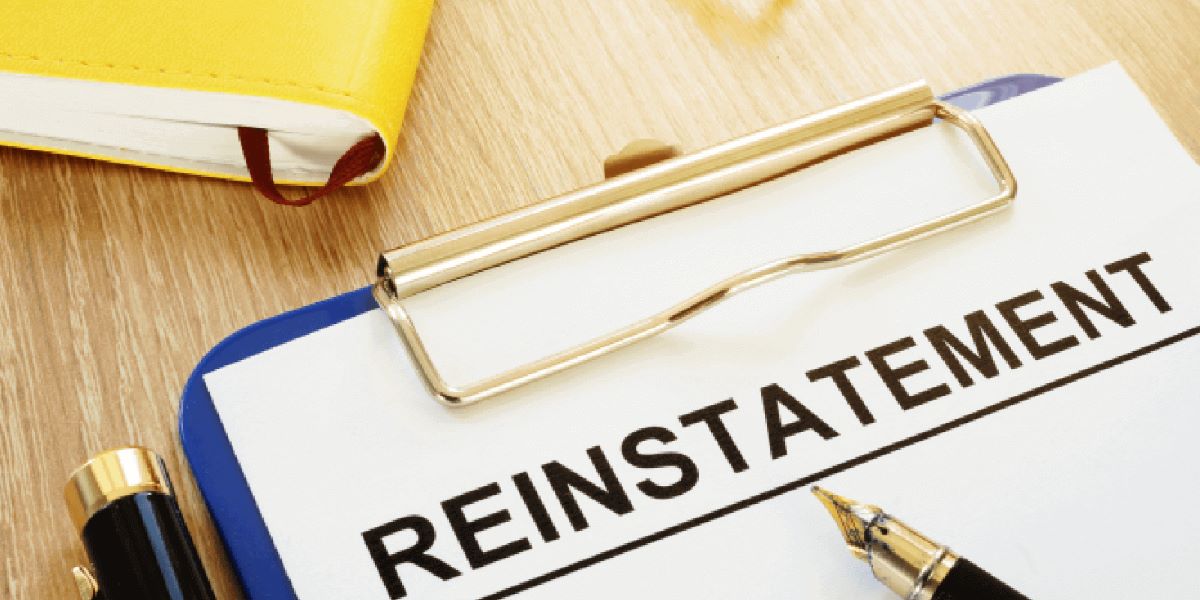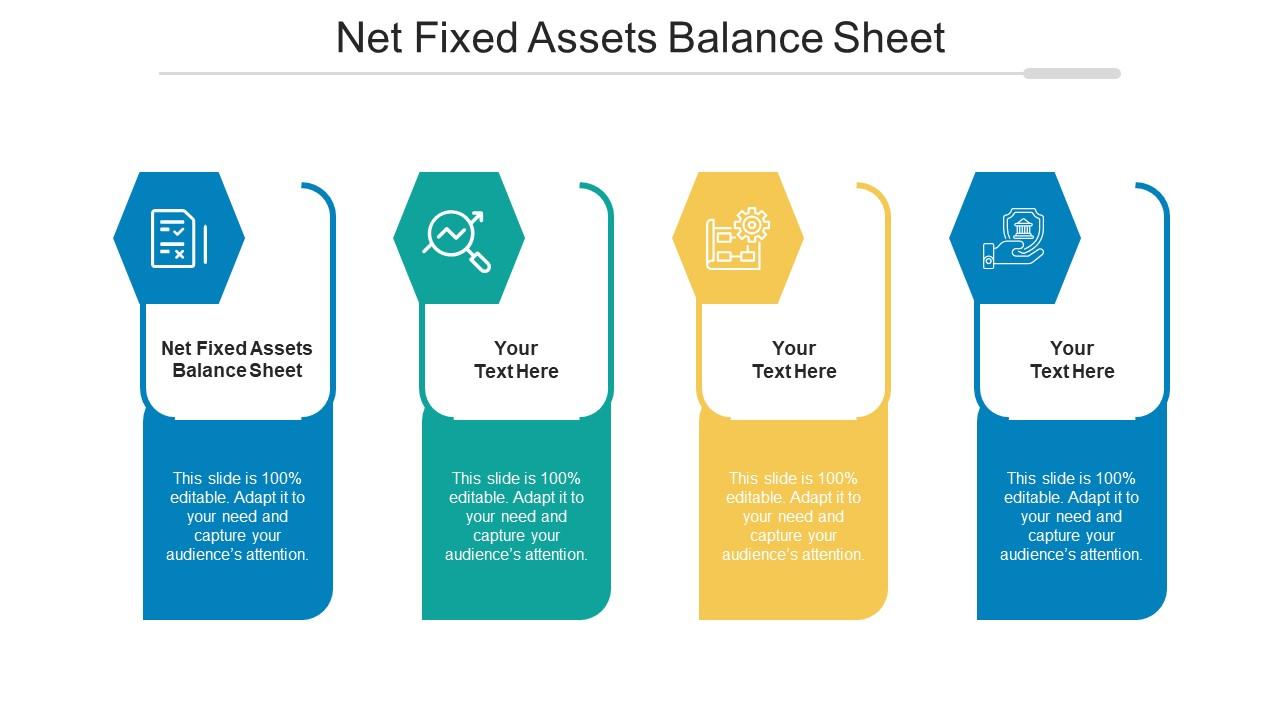

Finance
What Does Policy Holder For Insurance Mean
Published: November 13, 2023
Learn what a policy holder for insurance means and how it relates to finance. Understand the important role policy holders play in insurance coverage and financial protection.
(Many of the links in this article redirect to a specific reviewed product. Your purchase of these products through affiliate links helps to generate commission for LiveWell, at no extra cost. Learn more)
Table of Contents
- Understanding Policy Holder for Insurance
- Definition of Policy Holder
- Importance of Policy Holder in Insurance
- Rights and Responsibilities of Policy Holder
- Types of Insurance Policies available for Policy Holders
- Factors to Consider for Choosing the Right Policy Holder
- Common Issues Faced by Policy Holders
- How to File a Claim as a Policy Holder
- Tips for Policy Holders: Managing and Maximizing Insurance Benefits
- Frequently Asked Questions (FAQs) about Policy Holders in Insurance
Understanding Policy Holder for Insurance
When it comes to insurance, one of the key terms you’ll come across is “policy holder.” The policy holder is the individual or entity that owns an insurance policy. They are the central figure in the insurance process, as they enter into a contract with the insurance company to receive coverage for certain risks or events.
As the policy holder, you play a crucial role in the insurance arrangement. You have certain rights and responsibilities that you should be aware of to make the most of your insurance coverage.
First and foremost, the policy holder has the right to purchase insurance coverage from an insurance company. This means that you have the power to choose the type of policy, the coverage amount, and any additional features or riders that suit your needs.
Along with these rights, policy holders also have specific responsibilities. These responsibilities include paying the insurance premiums on time and providing accurate and complete information about the insured property, individuals, or events. It’s important to disclose all relevant information to the insurer, as any misrepresentation or omission of information could result in a denial of coverage.
As the policy holder, you have the authority to make changes to your insurance policy, such as updating beneficiaries, adding or removing coverage, or requesting policy endorsements. It’s important to review your policy periodically to ensure it still meets your needs and make any necessary updates or adjustments.
There are various types of insurance policies available for policy holders. Some common examples include auto insurance, home insurance, life insurance, health insurance, and business insurance. Each type of policy offers coverage for specific risks or events, tailored to the policy holder’s needs and circumstances.
When choosing the right policy holder, several factors should be considered. These factors include the level of coverage needed, the reputation and financial stability of the insurance company, the cost of the premiums, and any exclusions or limitations within the policy. It’s essential to carefully evaluate these factors to ensure you select the policy that offers the best protection for your specific situation.
Policy holders may encounter certain issues during their insurance journey. These issues can range from claim denials, delays in claim processing, policy cancellations, or disputes with the insurance company. If you face any difficulties or have concerns, it’s important to communicate with your insurance provider and seek resolution. In some cases, seeking legal advice may be necessary to protect your rights as a policy holder.
In the event of a covered loss or event, policy holders are entitled to file a claim to receive compensation from the insurance company. Filing a claim involves notifying the insurer, providing necessary documentation, and cooperating with any investigation or evaluation conducted by the insurance company. It’s crucial to understand the claims process and follow the guidelines specified by the insurer to ensure a smooth and timely claims settlement.
To get the most out of your insurance benefits, it’s helpful to manage your policies effectively. This includes regularly reviewing your coverage, making timely premium payments, and keeping important policy documents organized and easily accessible. You can also maximize your insurance benefits by understanding the coverage limits and any available discounts or incentives offered by the insurance company.
Ultimately, as a policy holder, it’s essential to have a clear understanding of your rights and responsibilities, carefully select the right policy, effectively manage your coverage, and properly file claims when needed. By being an informed and proactive policy holder, you can ensure you have the protection and peace of mind you deserve.
Definition of Policy Holder
The policy holder is the individual or entity that owns an insurance policy. Essentially, they are the primary party involved in the insurance contract and have the rights and obligations associated with the policy. The policy holder is also commonly referred to as the policy owner or insured.
As the policy holder, you have the power to select the type of insurance coverage that aligns with your needs and circumstances. This could include policies such as auto insurance, home insurance, life insurance, health insurance, or business insurance. Each policy caters to specific risks and provides coverage in times of unforeseen events.
The policy holder holds the responsibility to pay the insurance premiums timely and accurately. These premiums are the agreed-upon payments made to the insurance company in exchange for coverage. Failure to pay premiums can result in the cancellation or termination of the policy, leaving the policy holder without coverage.
Additionally, the policy holder must provide truthful and complete information about themselves, the insured property, or any other relevant details during the application process. This is crucial as any misrepresentation or omission of information can potentially invalidate the coverage, giving the insurance company the right to deny claims.
The policy holder also has the authority to make changes to the policy as needed. This could include updating personal information, adding or removing coverage, adjusting coverage limits, or even canceling the policy entirely. It is important to carefully review the terms and conditions associated with these changes as they may have an impact on the policy holder’s coverage and premiums.
In case of a covered loss or event, it is the policy holder’s responsibility to notify the insurance company and file a claim. This involves providing all necessary documentation and cooperating with any investigations or evaluations conducted by the insurer. The insurance company will then review the claim and determine the amount of compensation that the policy holder is eligible to receive.
Ultimately, the policy holder plays a critical role in the insurance process. They have the power to select the policy, pay premiums, provide accurate information, make changes as needed, and file claims. By fulfilling their obligations and exercising their rights, policy holders can ensure they have the appropriate coverage and protection they need in times of unexpected events.
Importance of Policy Holder in Insurance
The policy holder holds a crucial role in the insurance process, as they are the central figure in the insurance contract. Understanding the importance of the policy holder can help individuals and entities make informed decisions about their insurance coverage. Here are some key reasons why the policy holder is significant in insurance:
1. Ownership and Control: As the policy holder, you have ownership and control over your insurance policy. This means that you have the power to select the type and amount of coverage that aligns with your specific needs and circumstances. You can choose policies tailored to your risks, ensuring you have the protection you require.
2. Customization: The policy holder can customize their insurance coverage based on their unique requirements. Whether it’s adding additional riders for specific risks or adjusting the coverage limits, you have the flexibility to tailor your policy to fit your changing needs over time.
3. Protection: The primary purpose of insurance is to provide protection against unforeseen events and risks. As the policy holder, you hold the key to accessing this protection. You have the ability to safeguard yourself, your loved ones, or your assets from financial losses due to accidents, damages, or other covered incidents.
4. Peace of Mind: Insurance can provide a sense of security and peace of mind. Knowing that you have coverage in place can help alleviate concerns and worries about potential risks or uncertainties. The policy holder can have peace of mind, knowing that they have taken steps to mitigate potential financial hardships.
5. Financial Stability: Insurance can provide financial stability during challenging times. In the event of a covered loss, the policy holder can receive compensation, allowing them to recover financially and rebuild their lives. This can protect against significant financial setbacks that could otherwise have long-term consequences.
6. Risk Management: The policy holder plays a vital role in managing and mitigating risks. By carefully selecting the appropriate insurance coverage, the policy holder can transfer a portion of the risk to the insurer. This can help protect their financial well-being and enable them to navigate uncertain situations with confidence.
7. Legal Compliance: In many cases, having insurance coverage is a legal requirement. For example, auto insurance is mandatory in most jurisdictions. By becoming a policy holder, you fulfill your legal obligations and avoid potential fines or penalties associated with non-compliance.
8. Rights and Responsibilities: As the policy holder, you have specific rights and responsibilities in the insurance contract. It is essential to understand and fulfill these obligations to ensure the policy remains valid and claims can be processed smoothly when needed.
9. Empowerment: Being a policy holder allows individuals and entities to take control of their financial well-being. It empowers them to proactively protect themselves against potential risks, giving them a sense of control over their financial future.
10. Collaboration: The policy holder and the insurance company work together in a collaborative manner to ensure effective risk management. By maintaining an open line of communication and fulfilling responsibilities, the policy holder can establish a strong working relationship with the insurer.
Overall, the policy holder is a vital part of the insurance process. From selecting the right coverage to managing risks, the policy holder is responsible for making informed decisions that protect their financial well-being and provide a safety net in times of need.
Rights and Responsibilities of Policy Holder
As a policy holder, you have important rights and responsibilities that come with owning an insurance policy. Understanding these rights and responsibilities is essential to make the most of your insurance coverage and ensure a smooth and effective insurance experience. Here are some key rights and responsibilities of a policy holder:
Rights of a Policy Holder:
1. Right to Purchase Insurance: As a policy holder, you have the right to purchase insurance coverage from an insurance company. You can choose the type of policy, the coverage amount, and any additional features or riders that suit your needs.
2. Right to Be Informed: You have the right to receive accurate and complete information about the insurance policy you are purchasing. This includes details about the coverage, exclusions, limitations, and any other important terms and conditions.
3. Right to Fair Premiums: Policy holders have the right to be charged fair and reasonable premiums for their insurance coverage. The premium should be based on factors such as the risk profile, coverage amount, and policyholder’s history, among others.
4. Right to Privacy: Policy holders have the right to their privacy and personal information. Insurance companies are obligated to protect policyholders’ confidential information and only use it for legitimate purposes related to the insurance policy.
5. Right to Transparency: Policy holders have the right to transparency when it comes to the claims process. Insurance companies should provide clear guidelines and information on how to file a claim and should keep policyholders informed about the status of their claims.
Responsibilities of a Policy Holder:
1. Responsibility to Pay Premiums: One of the primary responsibilities of a policy holder is to pay the insurance premiums on time and in the manner specified by the insurance company. Failure to do so can result in a lapse in coverage or policy cancellation.
2. Responsibility to Provide Accurate Information: Policy holders have the responsibility to provide accurate and complete information about themselves, the insured property, or any other relevant details during the application process. It is essential to disclose all relevant information truthfully, as any misrepresentation or omission can potentially result in a denial of coverage.
3. Responsibility to Review Policy Terms: Policy holders should carefully review the terms and conditions of their insurance policy. This includes understanding the coverage, deductibles, limits, exclusions, and any other important provisions. It is important to be aware of what is covered and what is not to avoid any surprises when filing a claim.
4. Responsibility to Notify Changes: It is the responsibility of the policy holder to notify the insurance company of any changes that may affect the policy. This includes changes in personal information, address, or ownership of the insured property. Failure to notify such changes may result in a denial of coverage or complications during the claims process.
5. Responsibility to Cooperate in Claims Process: In the event of a covered loss or event, policy holders have the responsibility to notify the insurance company promptly and cooperate in the claims process. This includes providing all necessary documentation, information, and assistance as requested by the insurer.
6. Responsibility to Report any Issues or Concerns: If policy holders have any issues or concerns with their policy, premium payments, or claim processing, it is their responsibility to communicate with the insurance company and seek resolution. Promptly reporting any problems can help ensure a timely resolution and maintain a good working relationship with the insurer.
By understanding and fulfilling these rights and responsibilities, policy holders can effectively manage their insurance coverage, make informed decisions, and have a positive and productive relationship with their insurance company.
Types of Insurance Policies available for Policy Holders
There are various types of insurance policies available for policy holders, each designed to provide coverage for specific risks and events. Understanding the different types of insurance policies can help policy holders choose the right coverage that aligns with their needs and circumstances. Here are some common types of insurance policies:
1. Auto Insurance: Auto insurance provides coverage for vehicles against damage or loss due to accidents, theft, or other covered incidents. It typically includes liability coverage, which helps cover damages to other vehicles or property, as well as optional coverage for comprehensive and collision damage.
2. Homeowners Insurance: Homeowners insurance provides protection for homeowners against property damage, loss, or liability. It covers the structure of the home, personal belongings, and may include liability coverage for accidents that occur on the property. Additional coverage options are available for specific risks such as floods or earthquakes.
3. Renters Insurance: Renters insurance is designed for individuals renting a property. It provides coverage for personal belongings, liability protection, and additional living expenses if the rented property becomes uninhabitable due to a covered event. It is important for renters to have insurance to protect their personal belongings and mitigate potential liability risks.
4. Life Insurance: Life insurance provides financial protection to beneficiaries in the event of the policy holder’s death. It can be used to replace lost income, cover outstanding debts, or provide for loved ones. There are different types of life insurance, including term life insurance, whole life insurance, and universal life insurance, offering various coverage durations and cash value accumulation options.
5. Health Insurance: Health insurance covers medical expenses and provides financial assistance for healthcare needs. It can include coverage for doctor visits, hospitalization, prescription medications, and preventive care. Health insurance policies can be obtained through employers or purchased individually.
6. Disability Insurance: Disability insurance provides income replacement for policy holders who are unable to work due to an injury or illness. It can help cover living expenses and provide a source of income during the period of disability. There are short-term and long-term disability insurance policies available, each with different coverage durations and benefit amounts.
7. Business Insurance: Business insurance offers coverage for businesses against various risks and liabilities. It can include general liability insurance, property insurance, professional liability insurance, workers’ compensation insurance, and cyber liability insurance, among others. The specific coverage needed depends on the nature and size of the business.
8. Travel Insurance: Travel insurance provides coverage for unexpected events that may occur during travel, such as trip cancellation, trip interruption, lost baggage, or medical emergencies. It offers financial protection and assistance to travelers in various situations, ensuring peace of mind during their trips.
9. Pet Insurance: Pet insurance covers veterinary expenses for pets and can provide financial assistance in case of accidents, illnesses, or routine veterinary care. It can help offset the cost of pet medical treatments, ensuring that pets receive proper care without causing a financial burden on the pet owner.
10. Specialty Insurance: There are numerous specialty insurance policies available to address specific risks or industries. Examples include marine insurance, aviation insurance, event insurance, and professional liability insurance for specific professions like lawyers or doctors. These policies cater to unique risks and provide specialized coverage.
It’s important for policy holders to carefully assess their needs and consult with insurance professionals to determine the most appropriate type of insurance coverage for their specific situation. By selecting the right insurance policy, policy holders can effectively protect themselves, their loved ones, and their assets from potential risks and uncertainties.
Factors to Consider for Choosing the Right Policy Holder
Choosing the right policy holder is an important decision when it comes to selecting an insurance policy. The policy holder plays a significant role in the insurance process, as they are the central figure in the insurance contract. To ensure the best coverage and experience, there are several factors that policy holders should consider when choosing the right insurance provider. Here are some essential factors to consider:
1. Coverage Needs: Assess your specific coverage needs before choosing a policy holder. Determine the type of insurance coverage you require, whether it’s auto insurance, home insurance, life insurance, or any other type. Consider the risks you want to protect against and the amount of coverage you need to adequately mitigate those risks.
2. Reputation and Financial Stability: Look for a policy holder with a strong reputation and financial stability. Research the insurance company’s history, ratings, and reviews. Check their financial strength ratings from reputable rating agencies to ensure they are financially stable and capable of fulfilling their obligations in case of a claim.
3. Premium Cost: Compare premium costs from different policy holders. While cost should not be the sole factor driving your decision, it’s important to consider affordability. Evaluate the premiums along with the coverage and benefits offered to ensure you’re getting a fair and competitive price for the coverage you need.
4. Policy Exclusions and Limitations: Carefully review the policy exclusions and limitations of each policy holder. Examine what is not covered by the policy or any conditions that may limit coverage. Assess if the exclusions are relevant to your needs and if you can accept the limitations associated with the policy.
5. Customer Service: Consider the customer service provided by the policy holder. Assess how responsive they are to inquiries, how easy it is to communicate with them, and how efficiently they handle claims. A policy holder with responsive and helpful customer service can make your insurance experience smoother and more satisfactory.
6. Additional Benefits or Features: Explore any additional benefits or features offered by the policy holder. Some insurers may provide extra services or benefits such as roadside assistance, discounts, or online account management tools. These additional features can enhance your overall experience and provide added value.
7. Network of Service Providers: For certain types of insurance, such as health insurance or auto insurance, consider the network of service providers associated with the policy holder. Check if the policy holder has a wide network of doctors or repair shops that you can access easily. This can impact the convenience and quality of service you receive.
8. Policy Terms and Renewability: Read and understand the policy terms and conditions, particularly regarding the renewability of the policy. Review if the policy holder has the right to cancel the policy or change the terms at any time. Understanding the renewal process and any potential adjustments to the terms can prevent surprises or disruptions in coverage.
9. Recommendations and Referrals: Seek recommendations and referrals from trusted sources. Talk to friends, family, or professionals in the industry who have experience with different policy holders. Their insights and firsthand experiences can help guide your decision-making process.
10. Transparency and Trustworthiness: Consider the transparency and trustworthiness of the policy holder. Look for a policy holder that provides clear and upfront information about their policies, terms, and claims process. Transparency builds trust and ensures that you have a clear understanding of the coverage you are purchasing.
By considering these factors, policy holders can make an informed decision when choosing the right policy holder. Taking the time to evaluate these aspects can help ensure that you select a policy holder that aligns with your specific needs and provides the protection and service you expect in times of need.
Common Issues Faced by Policy Holders
While insurance is designed to provide protection and financial security, policy holders can sometimes encounter challenges or issues during their insurance journey. Being aware of these common issues can help policy holders navigate potential hurdles and address them effectively. Here are some of the common issues faced by policy holders:
1. Claim Denials: One of the most common issues policy holders face is claim denials. Insurance companies may deny claims due to policy exclusions, insufficient evidence or documentation, or errors in the claims process. It is important for policy holders to thoroughly review their policy, provide accurate information, and follow the claims process carefully to minimize the risk of claim denials.
2. Delayed Claims Processing: Another issue policy holders may encounter is delayed claims processing. Insurance companies may take longer than expected to process claims, causing frustration and inconvenience to policy holders. In some cases, delays may be due to a high volume of claims or complex investigations. Policy holders should communicate with their insurance company, follow up on the progress of their claims, and seek assistance if delays persist.
3. Policy Cancellations: Policy cancellations can occur for various reasons, such as non-payment of premiums, misrepresentation of information, or changes in eligibility criteria. It is crucial for policy holders to stay up to date with premium payments, provide accurate information when applying for insurance, and promptly notify their insurer of any changes that may affect the policy. Understanding the policy cancellation terms and conditions can help policy holders avoid unexpected cancellations.
4. Disputes with the Insurance Company: Policy holders may find themselves in disputes or disagreements with their insurance company. Disputes can arise over coverage issues, claim settlements, policy interpretation, or premium calculations. It is important for policy holders to maintain open lines of communication, gather supporting evidence, and seek professional advice, if necessary, to resolve disputes and protect their rights.
5. Unsatisfactory Settlement Amounts: Policy holders may sometimes feel the settlement amount offered by the insurance company is inadequate to cover their losses or damages. In such cases, it is essential to carefully review the policy, evaluate the documentation and evidence provided, and negotiate with the insurance company to ensure a fair and reasonable settlement.
6. Errors in Policy Documentation: Mistakes or errors in policy documentation can lead to complications and disputes in the future. It is crucial for policy holders to review their policy documents carefully upon receipt and verify that all the information is accurate and reflects the coverage agreed upon. Any discrepancies or errors should be promptly addressed with the insurance company to ensure the policy accurately represents the intended coverage.
7. Lack of Understanding of Policy Coverage: Policy holders may face issues due to a lack of understanding of their policy coverage. It is important to thoroughly read and comprehend the policy terms and conditions before purchasing insurance. Seeking clarification from the insurance company or consulting with an insurance professional can help policy holders understand the extent of their coverage and minimize any misunderstandings.
8. Poor Customer Service: In some cases, policy holders may experience poor customer service from their insurance company. This can include difficulty in accessing customer support, delayed responses to queries, or unprofessional conduct. It is important for policy holders to choose an insurance company with a reputation for good customer service and escalate concerns if quality service is lacking.
9. Premium Increases: Policy holders may experience unexpected increases in their insurance premiums. These increases can result from factors such as claims history, changes in risk assessment, or inflation. Policy holders should review their insurance contracts and be aware of potential premium fluctuations, considering alternatives if necessary to ensure they are still getting competitive rates.
10. Policy Changes or Renewal Adjustments: Insurance policies may undergo changes or adjustments upon renewal. Policy holders should carefully review renewal notices and communicate with their insurer to fully understand any modifications to the policy. It is important to review the revised terms and conditions to ensure they still align with the policy holder’s needs and expectations.
By being aware of these common issues, policy holders can be better prepared to navigate their insurance journey. It is crucial to maintain clear communication with the insurance company, understand policy terms and conditions, seek clarification when needed, and seek professional assistance if disputes or issues arise. Taking proactive steps can help policy holders protect their rights, secure fair coverage, and effectively manage their insurance policies.
How to File a Claim as a Policy Holder
Filing a claim is a crucial step for policy holders to receive compensation from their insurance company in the event of a covered loss or event. Knowing how to file a claim accurately and efficiently can help policy holders navigate the claims process effectively. Here are the steps to follow when filing a claim as a policy holder:
1. Review Your Policy: Start by reviewing your insurance policy to understand the specific coverage and any requirements for filing a claim. Familiarize yourself with the policy provisions, deductibles, limitations, and exclusions that may apply to your situation.
2. Notify the Insurance Company: Contact your insurance company as soon as possible to notify them of the incident or loss that you want to claim. Provide them with the necessary details about the event and any relevant information they may require.
3. Document the Loss: Take photos or videos of the damage or loss, if applicable. Keep copies of any receipts, invoices, or other documentation that supports your claim. Detailed documentation can help facilitate the claims process and provide evidence of the extent of the loss.
4. Complete Claim Forms: The insurance company will provide you with claim forms to fill out. These forms may require you to provide personal information, details of the incident, and other relevant information. Fill out the forms accurately and completely, ensuring that all the information provided is correct.
5. Provide Supporting Documentation: Attach any supporting documentation to your claim, such as receipts, estimates, or police reports, depending on the nature of the claim. This documentation helps validate your claim and provides evidence of the loss or damages.
6. Cooperate with the Claims Adjuster: The insurance company may assign a claims adjuster to investigate and evaluate your claim. Cooperate with the adjuster, provide them with any additional information they request, and be available for inspections or interviews as needed.
7. Follow Up Regularly: Maintain regular communication with the insurance company to inquire about the status of your claim. Stay informed about any additional documentation or information they may require and promptly provide it to them.
8. Review and Negotiation: Review the settlement offer provided by the insurance company. Assess if the offer adequately covers your losses or damages. If you believe the offer is insufficient, you have the right to negotiate with the insurance company to reach a fair settlement. Provide any additional information or evidence that supports your request for a higher settlement.
9. Acceptance and Release: Once a settlement agreement is reached, carefully review and understand the terms of the settlement. If you agree to the settlement, sign any necessary documents or releases provided by the insurance company. Make sure you have a clear understanding of any future obligations or conditions associated with the settlement.
10. Follow Through and Closure: Continue to communicate with the insurance company until the claim process is fully resolved. Confirm the completion of the claim, ensuring that all necessary documentation has been submitted and that you have received the agreed-upon settlement.
Remember to keep copies of all documents and correspondence related to your claim for your records. If at any point you encounter difficulties or have concerns during the claims process, don’t hesitate to reach out to the insurance company’s customer service department or seek legal advice to protect your rights as a policy holder.
By following these steps and providing accurate and timely information, policy holders can increase the chances of a smooth and successful claims experience.
Tips for Policy Holders: Managing and Maximizing Insurance Benefits
As a policy holder, effectively managing and maximizing your insurance benefits can help you make the most of your coverage and protect your financial well-being. Here are some tips to help you manage and leverage your insurance benefits:
1. Understand Your Policy: Take the time to thoroughly understand your insurance policy. Read the terms and conditions, coverage limits, deductibles, and any exclusions or limitations. Knowing the details of your policy will help you make informed decisions when filing claims and prevent any surprises.
2. Review and Update Coverage Regularly: Periodically review your insurance coverage to ensure it still meets your needs. Life events, changes in assets, or other circumstances may require adjustments to your coverage. Stay in touch with your insurance agent or company to discuss any changes or updates that may be necessary.
3. Pay Premiums on Time: Pay your insurance premiums in a timely manner to avoid any lapses in coverage. Set up automatic payments or reminders to ensure you stay up to date. A missed premium payment could result in a loss of coverage when you need it the most.
4. Bundle Policies: Consider bundling multiple insurance policies with the same insurer to potentially save money. Insurance companies often offer discounts when you have multiple policies, such as combining home and auto insurance. Review your options with your insurance provider to determine if bundling is beneficial for you.
5. Maintain Good Claims History: Minimize unnecessary claims to maintain a good claims history. Frequent and frivolous claims can lead to higher premiums or even policy cancellations. Only file claims for significant losses or damages that exceed your deductibles and make financial sense.
6. Take Advantage of Preventive Measures: Implement preventive measures to reduce the risk of accidents or damages. For example, installing security systems in your home or taking defensive driving courses may qualify you for insurance discounts. These proactive steps not only reduce risk but also demonstrate to your insurer that you are a responsible policy holder.
7. Document and Inventory Your Assets: Maintain a detailed inventory of your assets, including receipts, photographs, or videos. This documentation can serve as proof of ownership and aid in the claims process if you ever need to file a claim for theft, damage, or loss.
8. Communicate Openly with Your Insurance Company: Maintain open lines of communication with your insurance company or agent. Notify them promptly of any changes, such as address, contact information, or modifications to your insured property. Open and honest communication ensures accurate record-keeping and helps prevent issues when filing claims.
9. Understand the Claims Process: Familiarize yourself with the claims process for your insurance company. Understand the deadlines, documentation requirements, and procedures for filing a claim. Knowing what to expect will allow you to be proactive and ensure a smooth and efficient claims experience.
10. Seek Professional Advice: When in doubt, seek advice from insurance professionals, such as agents or brokers. They can provide guidance on policy selections, coverage options, and help you navigate complex situations. Additionally, legal advice may be necessary if you encounter claim disputes or if you have concerns about your rights as a policy holder.
By following these tips, policy holders can effectively manage their insurance coverage, maximize their benefits, and ensure they have the protection they need when unforeseen events occur. Regular review, proactive risk management, and open communication with your insurance company will go a long way in maintaining a positive and beneficial insurance relationship.
Frequently Asked Questions (FAQs) about Policy Holders in Insurance
Here are some frequently asked questions about policy holders in insurance:
1. What is a policy holder?
A policy holder is the individual or entity that owns an insurance policy. They are the central figure in the insurance contract and have the rights and responsibilities associated with the policy.
2. What are the rights of a policy holder?
Policy holders have the right to purchase insurance coverage, receive accurate information about their policy, pay fair premiums, maintain privacy, and manage their coverage. They also have the right to be informed of any changes to the policy and to file claims for covered losses.
3. What are the responsibilities of a policy holder?
Policy holders have the responsibility to pay premiums on time, provide accurate information when applying for insurance, review policy terms and conditions, notify the insurance company of any changes that may affect the policy, cooperate with the claims process, and communicate any issues or concerns with the insurer.
4. How do I choose the right policy holder?
When choosing a policy holder, consider factors such as their reputation and financial stability, the coverage options they offer, premium costs, customer service, and the network of service providers associated with them. Seeking recommendations from trusted sources can also help in the decision-making process.
5. What types of insurance policies are available for policy holders?
There are various types of insurance policies available for policy holders, including auto insurance, home insurance, life insurance, health insurance, business insurance, and specialty insurance policies tailored to unique risks or industries.
6. How do I file a claim as a policy holder?
To file a claim, notify your insurance company as soon as possible and provide them with the necessary details and documentation related to the claim. Complete any claim forms provided, cooperate with the claims adjuster, and follow up regularly for updates on the claim’s progress.
7. What can I do if my claim is denied?
If your claim is denied, review the denial letter and the policy to understand the reasons for the denial. Communicate with your insurance company to address any discrepancies or provide additional documentation. If necessary, seek legal advice to understand your options and protect your rights as a policy holder.
8. Can policy holders make changes to their insurance policies?
Yes, policy holders generally have the authority to make changes to their insurance policies. This can include updating beneficiaries, adding or removing coverage, adjusting coverage limits, or canceling the policy. It’s important to review the terms and conditions associated with these changes and consult with the insurance company before making any modifications.
9. How often should policy holders review their insurance coverage?
Policy holders should review their insurance coverage regularly to ensure it still meets their needs. Life events, changes in assets, or shifts in risk profiles may require adjustments to coverage. A good guideline is to review coverage annually or whenever significant changes occur.
10. Can policy holders have multiple insurance policies?
Yes, policy holders can have multiple insurance policies from different insurers or with the same insurer. Having multiple policies may provide comprehensive coverage for different risks and assets. It’s important to ensure that the coverage does not overlap and that the overall cost remains reasonable and affordable.
Remember, these are general answers to frequently asked questions, and it’s important to consult with your insurance company or professional advisor to address specific inquiries or concerns related to your policy as a policy holder.














